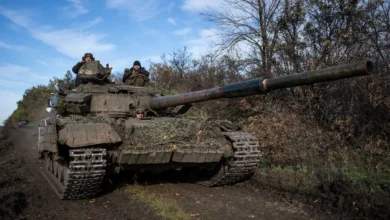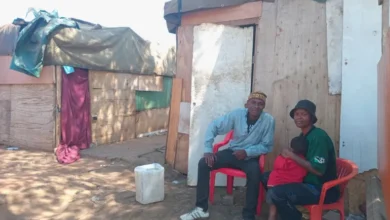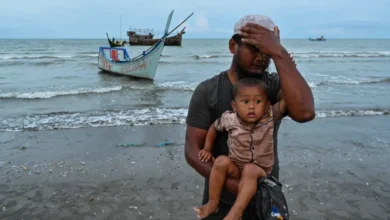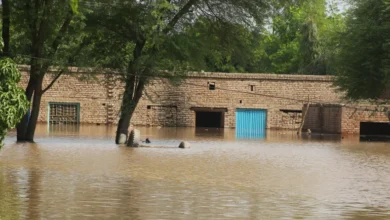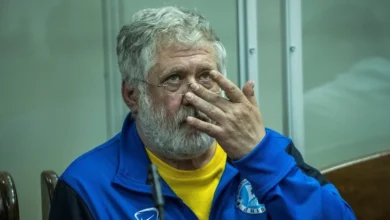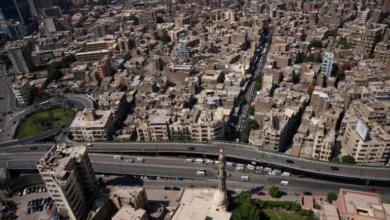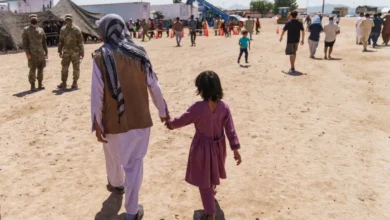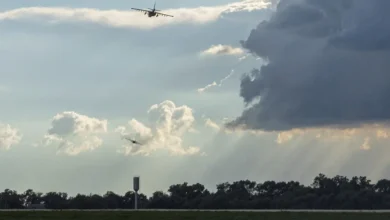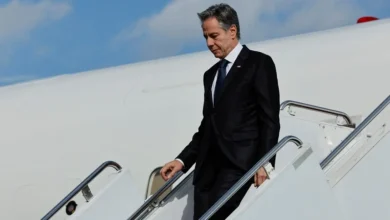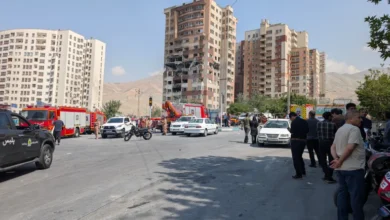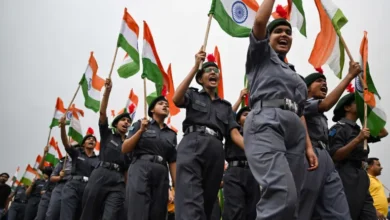Sri Lanka election 2024: Who could be the next president, what’s at stake?
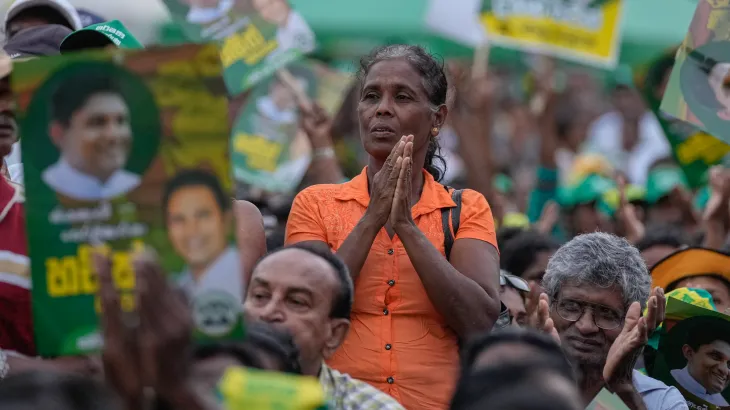
Sri Lankans will vote on Saturday to elect the South Asian nation’s 10th president in the first election since the catastrophic 2022 economic crisis that saw the country default on its loans.
Months of food and fuel shortages had caused political chaos forcing then-President Gotabaya Rajapaksa to flee the country in July 2022.
The incumbent President Ranil Wickremesinghe, who took over from Rajapaksa and has since tried to turn the economy around, is seeking re-election. He is being challenged by Anura Kumara Dissanayake from the Janatha Vimukthi Peramuna (JVP) party and Sajith Premadasa of the Samagi Jana Balawegaya (SJB) party.
Here is how the election will be held, what the top candidates are promising — and what’s at stake for the nation of 22 million people.
What time does the polling start in Sri Lanka?
The voting will begin at 7am (01:30 GMT) on Saturday across the country’s 13,134 polling stations. Polls close at 4pm (10:30GMT). Vote counting is expected to start at 9:30pm (16:00 GMT).
How do elections in Sri Lanka work?
- An independent body called the Election Commission of Sri Lanka (ECSL) oversees the election.
- About 17 million people out of Sri Lanka’s 22-million population are eligible to vote. Sri Lankan nationals aged 18 years or above, who are registered with the election commission, can vote.
- Police, army and other public servants who cannot cast their votes in person on election day vote through postal ballots in advance. This year, the advance voting took place on September 11 and 12, according to the International Foundation for Electoral Systems (IFES).
- Voters rank up to three candidates in order of their preference on a ballot paper.
- A candidate needs to secure 50 percent of votes as a first preference to secure the presidential seat in the first round.
- If no candidate wins 50 percent in the first round, a second round of counting takes place between the top two candidates from the first round. Other candidates are eliminated.
- No run-off vote is conducted to determine the president. Instead, the second preferences of the ballot papers for the eliminated candidates are considered. If those second preferences are for either of the top two candidates, they are transferred to their tallies.
- If one of the two remaining candidates is marked as the third preference, the vote is counted for that candidate.
- According to the 19th Amendment of Sri Lanka’s Constitution, passed in 2015, the president holds office for five years, and has a two-term limit.
Who are the key candidates?
A total of 38 candidates are vying to win the top executive post in the South Asian nation. While the number of candidates was initially 39, one candidate, independent Idroos Mohamed Ilyas, died of a heart attack in August.Ranil Wickremesinghe, a six-time prime minister, assumed office as interim president in July 2022 following Rajapaksa’s removal. While the 75-year-old has been affiliated with the centre-right United National Party (UNP), he is running for the top job as an independent candidate.
Wickremesinghe is campaigning with his slogan “Puluwan Sri Lanka” or “Sri Lanka Can” and on the message that he pulled the country out of economic duress.
But while several economic indices have improved — inflation is down dramatically, and the gross domestic product (GDP) is growing — Wickremesinghe is also criticised by opponents for belonging to the very same political elite that is blamed for the 2022 economic crisis. The incumbent president has governed with the backing of the Sri Lanka Podujana Peramuna (SLPP) party of the Rajapaksa family.
Critics also accuse Wickremasinghe — whose policies have included cuts in social welfare schemes to balance the country’s books — of making the weaker sections of Sri Lankan society bear the brunt of the sacrifices needed for the nation’s economic recovery.
Anura Kumara Dissanayake is from the Marxist party Janatha Vimukthi Peramuna (JVP), which has emerged in popularity after the 2022 crisis.
But Dissanayake’s popularity has been on the rise since the mass protest movement – known as the Aragalaya [Sinhalese for “struggle”] – erupted against then-President Gotabaya Rajapaksa and his brother and Prime Minister Mahinda Rajapaksa. Both were forced to resign.
